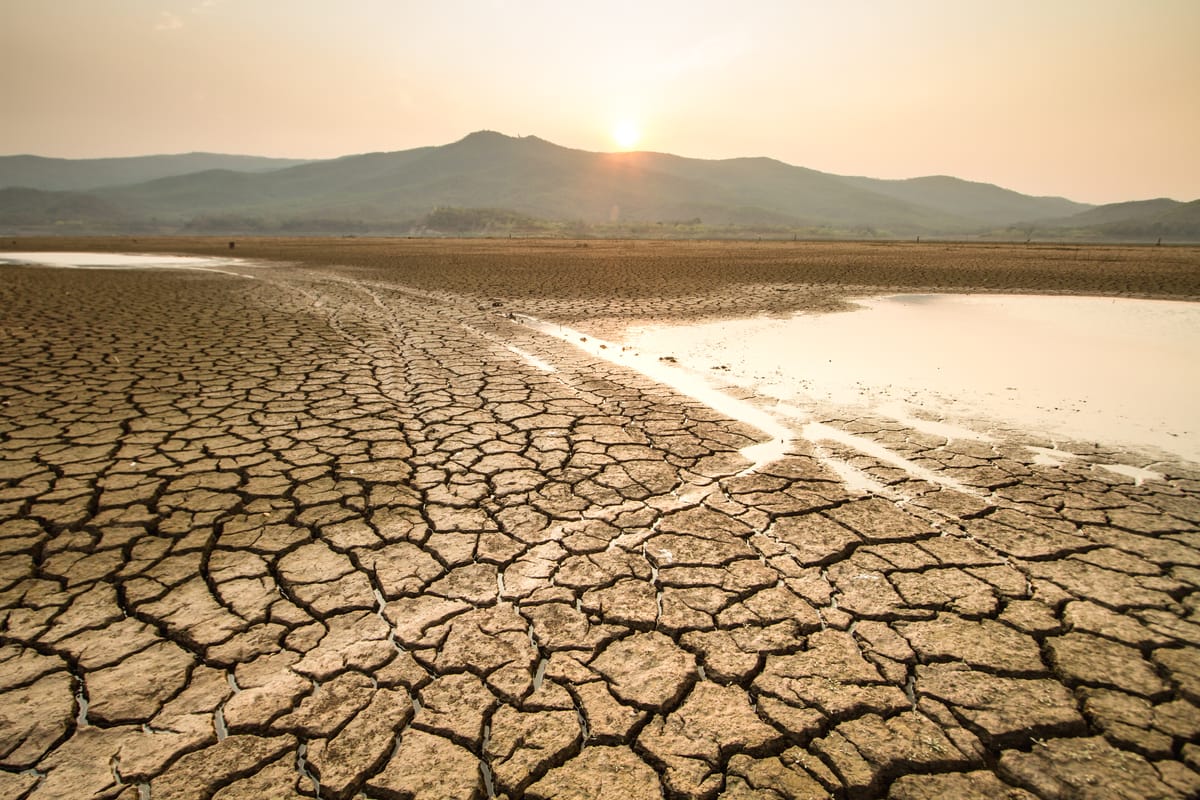While we aim to be a source of solutions and adhere to our mission of “amplifying the innovators moving climate ambition into action” in our newsletter, the simple truth is that this week delivered a series of setbacks for the planet. From record-setting temperatures that breached Paris Agreement limits to minimal progress on nature finance at COP16 to the likely rollback of climate commitments following the US election, this was an exceptionally bleak week that will undoubtedly cast a shadow over COP29 negotiations in Baku next week.
We don’t have time for missing milestones or clawing back commitments. We need public sector leaders around the world to advance reforms and resources to accelerate the green transition. If they are not prepared to do so, it will be ever more incumbent on stakeholders across the business community—from early entrepreneurs to established companies to investors of all types and sizes—to not just maintain the momentum we have seen in recent years, but commit to scaling their efforts even faster.
This is a test for all of us, and we will need creative, innovative thinking, cross-sector collaboration, and bold action to rise to the challenge. We hope to return to sharing stories related to progress on these fronts next week.
Temperatures in 2024 breached Paris Agreement target: The European Union's Copernicus Climate Change Service has predicted that 2024 will be the hottest year on record. According to the service, the global temperature in 2024 is expected to be more than 1.55°C above pre-industrial levels, surpassing the limit set by the Paris Agreement to mitigate the effects of climate change.
Climate change could deliver economic losses of 30%: The Network for Greening the Financial System (NGFS) has reported that the economic cost of climate change is likely to be much more severe than previously feared. The United Nations Environment Programme (UNEP) predicts the world is currently on course for warming of 3.1°C above pre-industrial levels, which would result in GDP losses of roughly 30% at about 3°C of warming. Even if governments deliver on all the reforms they've promised, the average temperature may rise by 2.6°C, which is well above the critical threshold of 1.5°C.
Lack of financing for climate adaptation: The United Nations warned that developing nations require hundreds of billions of dollars per year in aid to adapt to the impacts of climate change. According to a report by the U.N. Environment Program, at least 171 countries have a national climate adaptation plan, but efforts remain underfunded, particularly in poor countries. The report estimates that developing nations need between $187 billion and $359 billion annually in additional funding to cope with climate change disasters, while wealthy nations provided only $28 billion in aid for climate adaptation in 2022. In one example, The Bahamas has received $155 million in climate finance, but only $10 million has been targeted towards adaptation, which is insufficient to address the impacts of climate change, including the $3 billion in damages caused by Hurricane Dorian five years ago.
COP16 biodiversity negotiations suspended in overtime: The 16th United Nations Biodiversity Conference (COP16) in Cali, Colombia, was suspended after countries failed to agree on creating a new global fund for nature following tense talks that extended into Friday night. The main point of contention was the establishment of the nature fund, which was met with last-minute objections from the EU, Switzerland, and other developed nations, citing concerns that it would "further fragment the biodiversity finance landscape." Despite the lack of progress in finance, COP16 achieved some of its goals, including establishing a new Cali Fund to protect nature to be funded by companies that sell products based on genetic data from the natural world. Companies of a specific size in sectors like pharmaceuticals, biotechnology, and cosmetics will contribute 1% of their profits or 0.1% of revenue to the fund. The fund's proceeds will be allocated to countries for nature protection, with at least half going to Indigenous peoples and local communities. The mechanism, however, is not mandatory.
What a new Trump Administration means for energy and EVs: Donald Trump’s election win is expected to significantly impact US energy and environmental policy, with implications for oil production, offshore wind development, and electric vehicle sales. Trump's victory positions him to deliver on his campaign promises to reverse climate policies and reorient the federal government towards increasing crude oil production and building more power plants. The Trump Administration might also end federal policies encouraging EV sales, open public lands for energy development, and reverse a Biden Administration moratorium on new permits for liquefied natural gas exports.
Trump's win raises concerns ahead of COP29: Donald Trump's vow to withdraw the US from the 2015 Paris Agreement for the second time could have long-lasting repercussions, undermining faith in climate cooperation and destabilizing global efforts to reduce planet-warming pollution. The US delegation to COP29 beginning next week will have diminished credibility and leverage, complicating negotiations over public finance for developing nations and constraining countries' ambitions in setting new carbon-cutting pledges. The US has a history of being an unreliable partner in climate talks, having failed to ratify the Kyoto Protocol and partially reneged on its past pledge to contribute to a UN climate fund. While the EU has historically stepped in to make up for shortfalls, the EU itself is entering the negotiations on the backfoot, with several top leaders, including German Chancellor Olaf Scholz, European Commission President Ursula von der Leyen, and French President Emmanuel Macron, skipping the conference to deal with domestic issues.
Biden moves to limit oil exploration in ANWR: The Biden Administration has moved to limit the scope of an oil-and-gas lease sale in Alaska's Arctic National Wildlife Refuge, mandated under President Donald Trump, by narrowing the area available for drilling. The plan aims to offer 400,000 acres in the northwest portion of the refuge's coastal plain, the minimum required by the 2017 law while avoiding critical habitat for polar bears and calving grounds for the Porcupine caribou herd. The decision comes hours after Trump secured a second term and vowed to boost oil drilling in the refuge as part of broader plans to expand fossil fuel production on public lands across the country.
AI thermostats offer relief for Texas energy grid: To relieve the stressed Texas electrical grid, NRG Energy Inc. is partnering with Renew Home LLC to distribute approximately 650,000 artificial intelligence-enabled thermostats that utilize Alphabet Inc.'s Google Cloud technology over the next decade. The program will use AI and machine learning from Google Cloud to determine the best time to cool or heat homes based on a household's energy usage patterns and ambient temperatures. The initiative aims to reduce nearly 1 gigawatt of electricity demand — enough to power 200,000 Texas homes or about 1% of the record summer demand seen this year on the state grid.
Turning front yards into tiny farms: Crop Swap LA transforms front yards and unused spaces into microfarms to provide fresh produce for local families and promote environmental sustainability. The organization's flagship microfarm, located in Leimert Park, Los Angeles, is a 2,500-square-foot space that produces a wide variety of fruits and vegetables, including grapes, blackberries, basil, sweet potatoes, and leafy greens, using a fraction of the water required by a traditional lawn. The microfarm uses a combination of raised garden troughs, elevated planters, and a trellis system to maximize space and minimize water usage, with an estimated 98% reduction in water consumption compared to a traditional lawn. Crop Swap LA operates on a farm-share model, with subscribers paying for a weekly bag of fresh produce, and prioritizes hyperlocal distribution to reduce vehicle emissions and support the local community.


